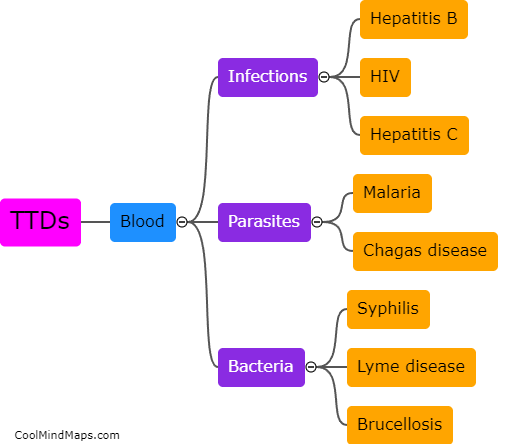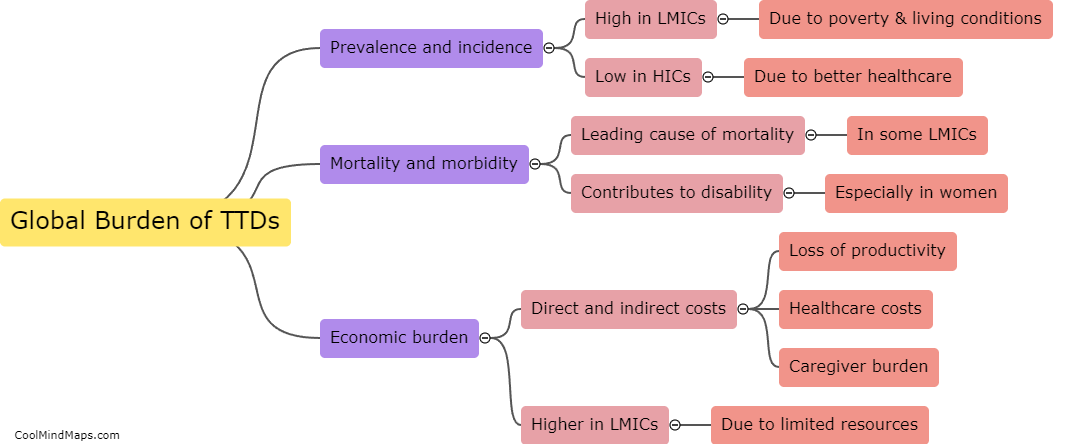What are the types of infections that can be transmitted through blood transfusion?
Blood transfusions have been known as a potential route of transmission for many infectious diseases, ranging from viral, bacterial, parasitic, and prion infections. Some of the common infections that can be transmitted through blood transfusion include HIV/AIDS, hepatitis B, hepatitis C, Zika virus, West Nile virus, Chagas disease, and malaria. The risk of transmission depends on several factors, such as the prevalence of the infection in the donor population, the sensitivity of the screening tests used, and the infectious dose of the pathogen. To minimize the risk of transfusion-related infections, blood banks follow strict testing and screening protocols and employ different strategies to provide safe and effective blood products for patients who need them.

This mind map was published on 25 June 2023 and has been viewed 116 times.











